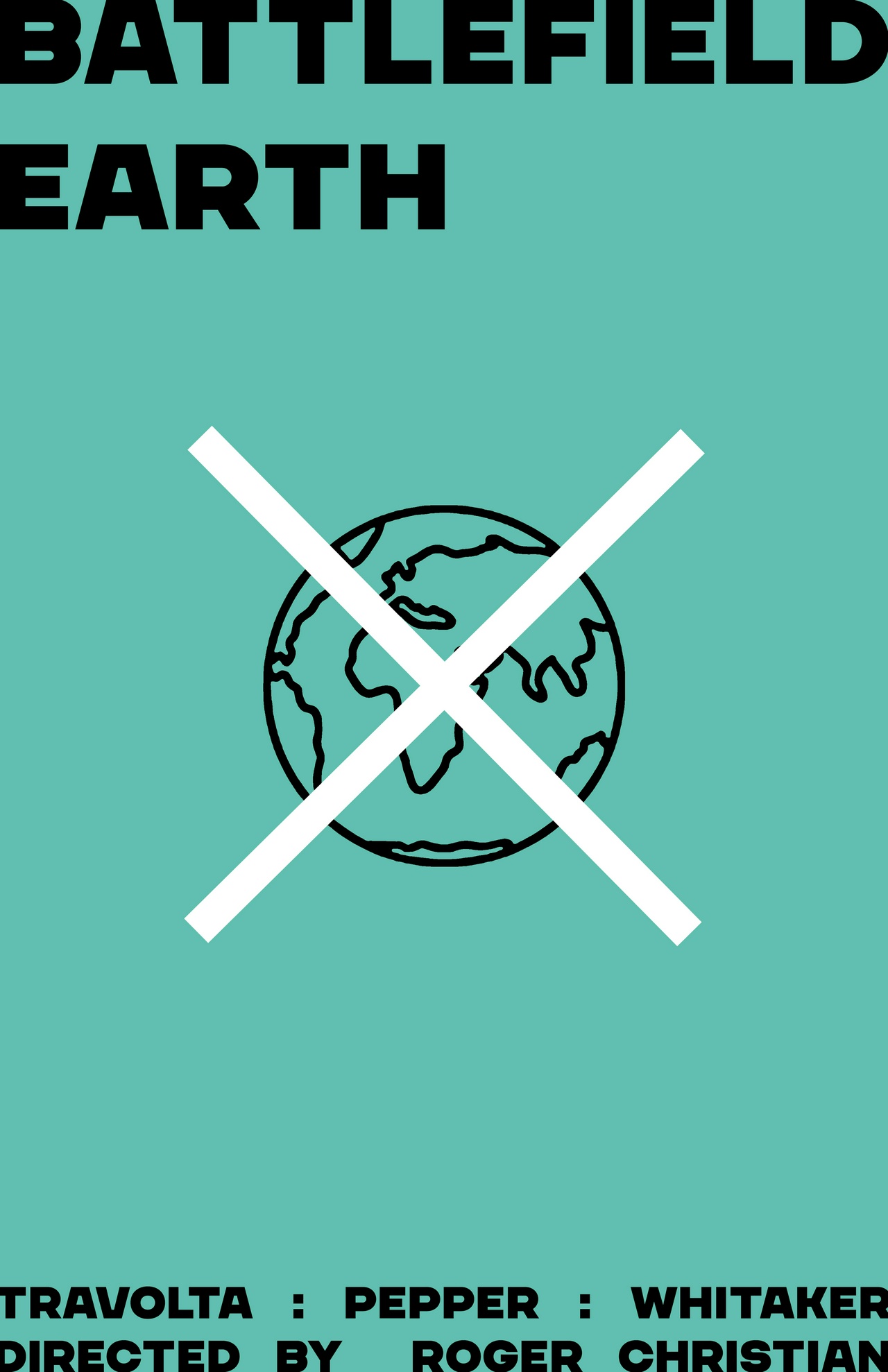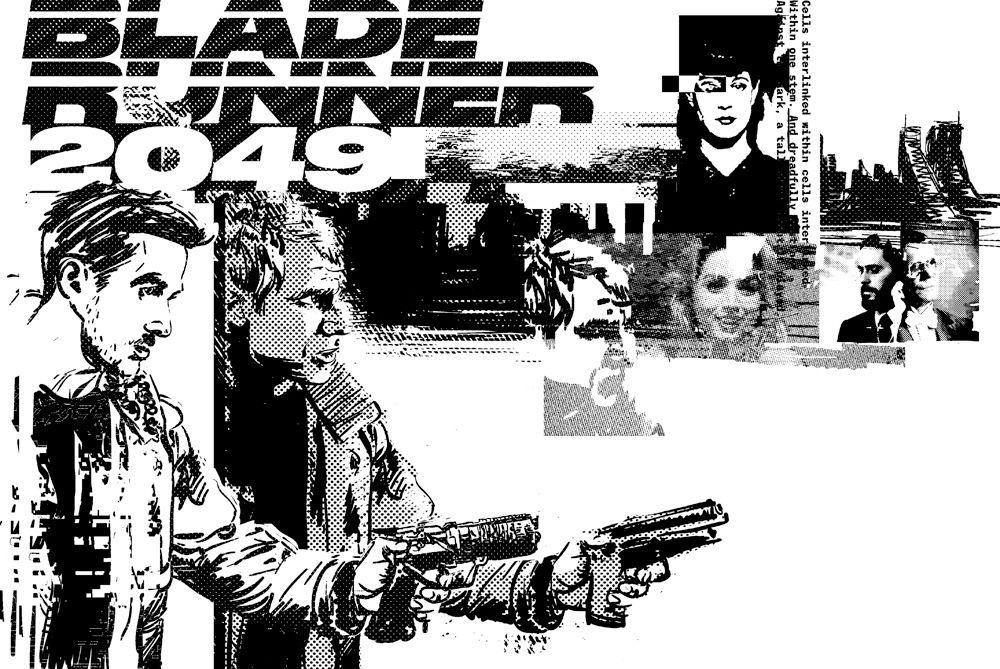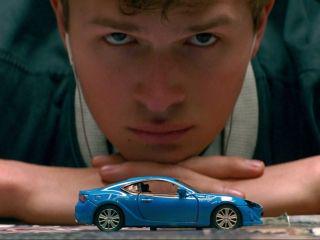Battlefield Earth
by Roger Christian
o-o-c

The fact that you have to explain yourself for attempting to watch, read, or look at something is truly indicative of a peculiarly stupid aspect of the human condition, and yet here I am about to explain myself.
Let me start by saying: Ayn Rand. I only ever heard of her through one of Adam Curtis' video essay things (probably ALL WATCHED OVER BY MACHINES OF LOVING GRACE) and only then did I discover she was apparently a big deal with multiple generations worth of resounding influence despite some clearly problematic aspects in her philosophy/worldview. It was then that I decided to watch a never-talked-about 1949 film adaptation of her novel THE FOUNTAINHEAD, which made visible a distillation of what you might call the strange attractor element in Rand's outlook, along with the nasty which she surprisingly didn't see as nasty (included in the film is a rape scene perpetrated by its righteous protagonist wherein the victim actually likes it). For the longest time I wondered how Rand could maintain a following after that, but then again of course she did! Because a philosophy (if we can call it that) based in misogyny will always be attractive to those who think themselves intellectuals while also maintaining misogynistic leanings (yeah, yeah, roleplaying rape and other sexually depraved kinks is different because y'know what comes part and parcel with roleplay? Consent.). I have since been interested in reading Ayn Rand fully knowing that I would disagree with much of her writing. The basis of this interest I think is the following: 1) To study how one might base a work of fiction on their own personal philosophy. 2) To better understand the “strange attractor” aspects of said philosophy. 3) To make clear “the nasty” aspects of said philosophy to make the basis of “villainy” in own future work.
Having said that, fast forward 10+ years later and I have yet to read a single word penned by Rand because it's especially hard to carve out the time to read something you already know you're not that into when you have a to-read pile the length of the Earth's circumference comprised of works you genuinely want to read.
This same sentiment I harbored for BATTLEFIELD EARTH probably since it came out. Why watch a knowingly bad movie when there are so many good ones out there? This logic becomes a tad contradictory though knowing that I have in the past made the time to watch other knowingly bad movies. You know the ones I'm talking about: the infamous THE ROOM, THE MAN WHO SAVED THE WORLD (otherwise known as “Turkish Star Wars”), and PLAN 9 FROM OUTER SPACE to name but a few. But of course these are the “acceptable” bad movies, the ones that have made the lists that people seek out to watch with the same mentality of going to watch a comedy despite these films not being filmed as comedies. Given that no one has dared put BATTLEFIELD EARTH on a must-watch bad-film list, then of course not even the bad film aficionados are interested in checking this “famously bad” film out. See, you live long enough and one of the most disappointing things you discover about the human race is: Even the mavericks are conformists. Just a different type of conformist is all.
So anyway, I finally took the plunge and watched the damn thing, and guess what? IT'S ACTUALLY NOT ALL THAT BAD!!
I mean, don't get me wrong, it is not by any stretch of the imagination a good movie, but it really isn't as bad as I expected it to be. But maybe that's part of it: expectation. If I were to go see it with the expectation of watching a good movie, my reaction would have likely been very different. But my expectations as you might imagine were really fucking low. In regards to the movie's plot, I wouldn't consider it any more mediocre than any of the [absolutely deplorable] Marvel movies that've come out in past decade. In fact, from a story standpoint alone, I would place BATTLEFIELD EARTH a hair or two higher than any of the Marvel gunk, if for no other reason than it providing some form of commentary beyond the overblown concerns entirely confined within the negligible soap operatic constructs of the fictional world within which its characters inhabit. Thematically, it has quite a bit in common with something like, say, SORRY TO BOTHER YOU albeit with an approach to execution that is far from commendable. The special effects are a fucking joke, but no more a joke than any 80's-era sci-fi B-movie, or heck even classic STAR TREK for that matter. As far as the film's dreaded ties to scientology, I was disappointed in not really finding much if any! I was expecting the villainous Psychlos to be exaggerated stand-ins for psychologists based solely on the name and scientology's long-standing feud with the field, but they in fact talk and behave like greedy capitalists more than anything. I gotta say, I love John Travolta's Psychlo. He was clearly having a ton of fun embracing all the B-movie trappings of his character, and I found him to be joyously hilarious. From a character design standpoint however, I'm not so sure about the standard sci-fi bad guy approach (monstrous, bad skin, bad teeth, etc.). Given the type of real world person they're parodying, I think a futuristic imagining albeit alien version of the very slick, extremely polished good-looking CEO-type would've gone a long, long way. But without redoing anything, you could probably salvage a pretty decent film out of what's already been shot. Perhaps with some re-editing and updated special effects. But if a revisit were ever on the horizon, an entirely fresh remake would be much better, not unlike what went down with DUNE. In fact, aesthetically speaking, much of BATTLEFIELD EARTH did bring me back to some bits in David Lynch's DUNE.
Or don't revisit this shit, I couldn't care less. But truth be told, there is enough of a “strange attractor” in the material to check it out. And it could totally be on a so-bad-it's-funny list!




